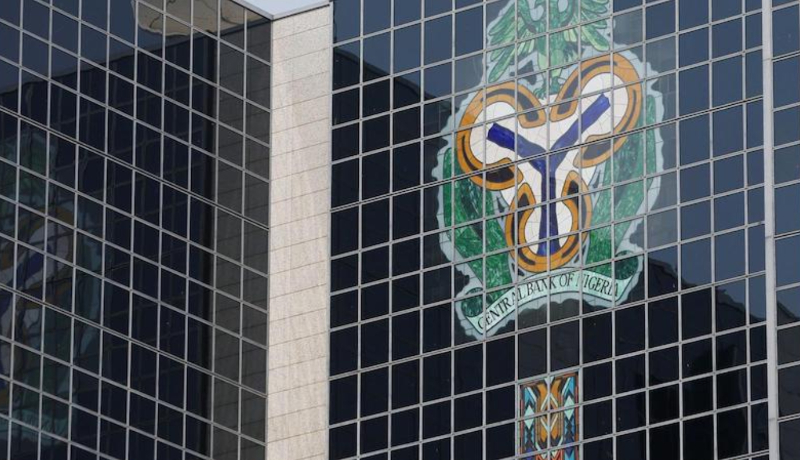As the Central Bank of Nigeria (CBN) steps up effort to redesign N200, N500, and N1,000 notes currently in circulation, currency outside the banks added N108.67billion to N2.84 trillion in October 2022 from N2.73 trillion in September, the CBN money and credit statistics has revealed.
According to the CBN data, currency outside the banks appreciated by 11.07 per cent Year-on-Year (YoY) from N2.54 trillion reported in corresponding period of 2021.
The money and credit Statistics revealed that currency outside banks hit the highest record of N2.84trillion in October.
While defending its decision to redesign the Naira, the apex bank in October expressed that some individuals were stockpiling huge amounts of cash outside the banking system.
The CBN Governor, Godwin Emefiele had in a statement said, “Significant hoarding of banknotes by members of the public, with statistics showing that over 85 per cent of currency in circulation are outside the vaults of commercial banks.
“To be more specific, as at the end of September 2022, available data at the CBN indicate that N2.73 Trillion out of the N3.23 trillion currency in circulation, was outside the vaults of Commercial Banks across the country; and supposedly held by the public.
“Evidently, currency in circulation has more than doubled since 2015; rising from N1.46 trillion in December 2015 to N3.23 trillion in September 2022. This is a worrisome trend that cannot be allowed to continue.”
The statistics revealed that currency-in-circulation (CIC) grew YoY by 11.22 per cent to N3.3 trillion in October 2022 from N2.97 trillion in 2021.
CIC in October gained 2.17 per cent or N70.03billion to N3.3trillion in October from N3.23trillion reported by the CBN in September, the Statistics disclosed.
Anaalyst and President, Bank Customers Association of Nigeria (BCAN), Dr. Uju Ogubunka attributed the increasing CIC to politicians spending towards the 2023 primary elections.
According to him, “Politicians are spending more money and it will definitely affect not just currency in circulation alone but the foreign exchange market. It will get worst when politicians start the main campaign towards 2023. As you likely know, the online system has not been effective and even it does, cash will still be the main drivers for politicians and it has its implications on our national economy.”
He expressed that with the increasing demand for currency, the CBN has to print more and factor in the distributing cost.
He noted that prices of some goods and services are likely to increase when there is a hike in currency in circulation, stating that the inflation rate is also likely to appreciate further.
He said, “Expect there is intervention, the inflation rate will increase. The CBN also has to carry on destroying cash not fit in circulation. Mutilated naira notes are expected to increase and CBN has to print more money in a move to sustain stability in the economy.”
Speaking from a different perspective, analyst at PAC Holdings, Mr. Wole Adeyeye opted that a double-digit inflation rate is responsible for hike in CIC, stressing that political spending another contributing factor.
He also expressed that most banks in Nigeria showed a significant rise in ATM withdrawals and this could be linked to increase in CIC.
According to him: “Many things may have contributed N3.3trillion in CIC. The inflation rate at 16.83per cent is still on high and it has reflected in the prices of goods and services that have increased significantly in the market, hence people need to spend more money.
“Also, the persistent depreciation of Naira in the foreign exchange market shows that people need more Naira to exchange for one US dollar. Also, data from most banks in Nigeria showed a significant rise in ATM withdrawals and this could be linked to increase in currency in circulation. In addition, the increase in domestic credit may have contributed to higher currency in circulation.”
The Vice president, Highcap securities limited, Mr. David Adnori, stated that the 0.0.73 per cent marginal growth in credit to the private sector in October 2022 demonstrated how double-digit inflation has affected nominal demand for Naira by private sector businesses, given continuing rise in input cost and the usual burden of imported inflation.
“Since this nature of demand for money may not necessarily translate to improved productivity, it follows, therefore, that economy may not also benefit in terms of additional jobs or output growth. This is just evidence of the unstable state of the macroeconomic environment in Nigeria,” he explained.
The CBN numbers also revealed that commercial banks’ credit to the government, however, dropped by N146.2 billion or 0.64 per cent to N22.68 trillion in October 2022 from N22.83 trillion in September 2022.
Analysts further commented that commercial banks shunned lending to the government over 2023 political pressure, maintaining that the decline commenced in September 2022.
Credit to the government had steadily been on the rise since the opening of 2022 and crossed the N20trillion mark in July.
The credit and money statistics revealed that Banking sector credit to the private sector initially rose by N294.9billion or 0.73 per cent from N40.50 trillion in September to N40.8trillion in October 2022.
According to the statistics, commercial banks’ credit to the private sector rose by 17.85 per cent Year-on-Year from N34.62trillion in October 2021.
The CBN had introduced the directive to increase Loan-to-Deposit Ratio (LDR) to 60per cent, encouraging commercial banks to do more of small and medium-sized enterprises, retail, mortgage, and consumer lending.
The apex bank sanctioned banks that fell short of the old 60per cent benchmark while increasing the LDR to 65per cent, pressuring commercial banks to increase lending to the real sector of the economy.
SOURCE: THISDAY











